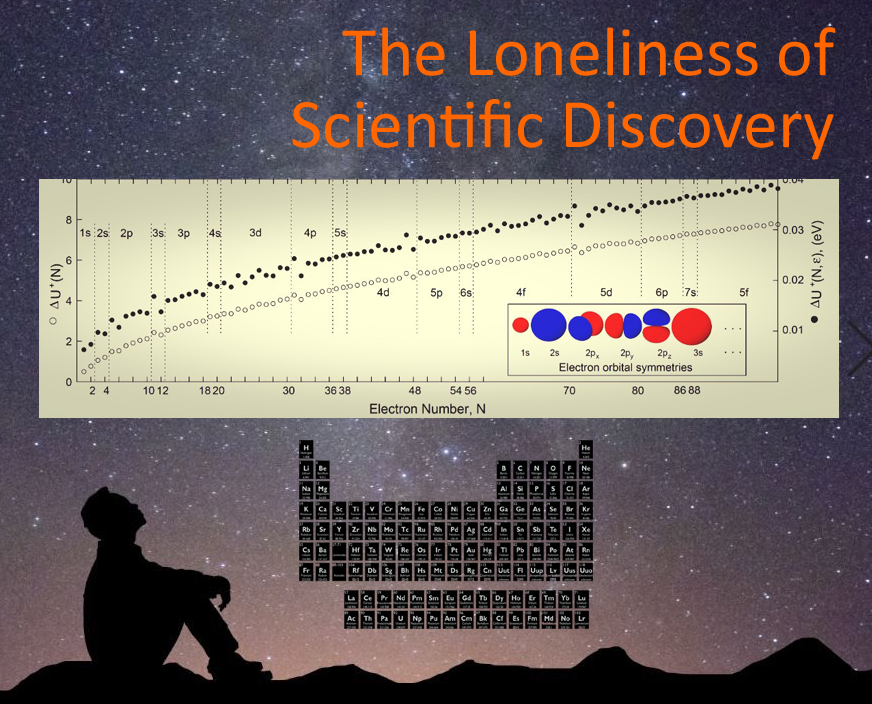As a graduate science and engineering student, I had the choice to finish my PhD program with a knowingly bare-bones triumph that was a slightly edged-forward improvement over my masters research on a possible new way to make transistors OR the chance to do something truly novel. Leaving my masters advisor behind was a no-brainer. I survived a ship already under water -- its captain still opening hatches. The choice of what to do next was tricky.
My new doctoral advisor gave me an outline of five possible projects. I initially chose one that led down a rabbit hole with a proposed mathematical solution my advisor sternly warned against pursuing further. "It won't get you a job," he said. "No one will take it seriously even though it looks right." It involved unmeasurable quantities. This set me back a year or so.
I next chose a quantum mechanics problem that led to a new philosophical approach to the theory that could be tested with numerical results. But I stumbled upon something else. It was an unrelenting kink in a function my advisor asked me to use to fit to some data of his and a former student on a related problem. I discovered the entire framework used to produce the data was wrong.
About three months later, February, I made a scientific discovery. It seemed so simple that surely someone had found it before. I located a paper from just a few years earlier that explained what I discovered had not yet been found. I couldn't find anything newer. Did I really make this discovery? Me? Just me alone?
Yep. It was just me alone.
Alone. That's the insanity of it. The coldest psychological feeling I've ever experienced. I quietly stayed outside my apartment one night once the neighbors' kids with whom I often played board games, baseball, and chatted up on the patio until sunset were called into their homes. I was alone with my thoughts. With my discovery. Just me staring out across a clear Charlotte sky at the stars. I knew something not a single other of about 6 or 7 billion people in the world knew. The loneliness of the moment was terrifying, but I let it settle in for a few minutes. I've been told this is what poets apparently tend to do. We relish suffering. I eventually pushed it out and went to bed.
I received a nice email a couple years later from a researcher whose early 1990s paper pointed out a "systematic" error in statistics-based work. I identified the "system" as the periodic table of elements with my framework based only on geometry and Coulomb's Law. No statistics! He congratulated me for making the discovery about atomic structure.
The only other congratulations came from my doctoral advisor. He shook my hand, insisted it would win the Nobel prize one day, then asked me to solve yet another big problem. It visibly pained him to ask this as I was already set back 5 years. I responded with a complete solution that Monday.

